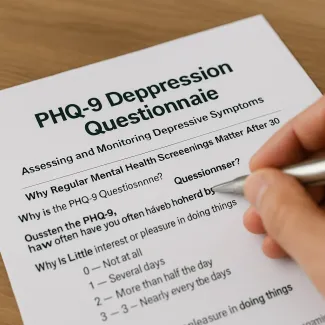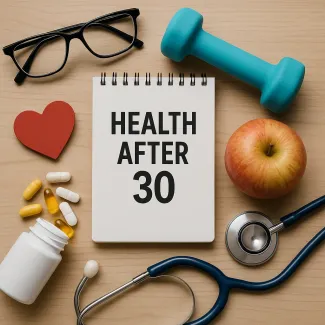
Alcohol and Aging: What Changes After You Turn 30?
How alcohol affects your health in your 30s and beyond
Understanding the aging body and its response to alcohol
Once we cross the threshold of our 30s, our body begins to undergo subtle yet significant physiological changes. While these transformations might not be dramatic at first, they deeply influence how substances like alcohol are processed. Unlike in our 20s, where recovery from a night out could be quick and almost effortless, the body in its 30s starts showing early signs of metabolic slowdown, changes in hormonal balance, and reduced liver efficiency. These factors combined can amplify alcohol’s short-term and long-term effects on health.
Slower metabolism and its effect on alcohol processing
The metabolic rate naturally decreases with age, which means the body becomes less efficient at breaking down alcohol. This leads to:
- Longer-lasting hangovers
- Increased fatigue after drinking
- Greater likelihood of alcohol retention in the bloodstream
This metabolic shift also means that even moderate alcohol consumption may result in stronger effects, such as impaired judgment, lower tolerance, and increased risk of dehydration.
Liver function decline and alcohol toxicity
Your liver plays a central role in detoxifying alcohol, converting ethanol into acetaldehyde and then into acetic acid. But after the age of 30, the liver’s detoxification capacity begins to decline gradually. This contributes to:
- Increased oxidative stress
- Accumulation of inflammatory byproducts
- Higher vulnerability to fatty liver disease and other hepatic conditions
Regular drinking in your 30s, especially binge drinking, can accelerate the development of alcohol-related liver conditions.
Hormonal changes and alcohol sensitivity
By the time you reach your 30s, testosterone levels in men begin to drop, and estrogen-progesterone fluctuations become more pronounced in women. Alcohol has a compounding effect on these hormones, potentially causing:
- Mood swings and heightened anxiety
- Disruption in sleep patterns
- Aggravation of PMS symptoms in women
- Lowered libido and energy in men
Alcohol can further disrupt your circadian rhythm, leading to poor sleep quality and feelings of sluggishness the next day.
Muscle mass, body fat, and alcohol tolerance
With age, there is a natural shift in body composition: muscle mass tends to decrease, while body fat may increase. Because alcohol is not stored in fat, individuals with higher body fat percentages and less lean muscle may:
- Feel intoxicated more quickly
- Have longer alcohol retention times
- Be more prone to alcohol-induced dehydration
This explains why some people feel they “can’t handle alcohol like they used to.”
Gut health and digestion after 30
Alcohol can negatively affect gut flora, especially in a body that is already more sensitive due to age-related changes in the digestive system. After 30, alcohol may lead to:
- Increased bloating and indigestion
- Disruption of microbiome balance
- Heightened gut inflammation, which can contribute to leaky gut syndrome
Maintaining gut health becomes more crucial as you age, and regular alcohol use can undermine this balance.
Cardiovascular risks of alcohol in your 30s
While moderate alcohol consumption has often been associated with some cardiovascular benefits, excessive or frequent drinking after 30 may increase the risk of:
- High blood pressure
- Irregular heartbeat (arrhythmia)
- Greater susceptibility to stroke and heart disease
Even socially accepted patterns like “weekend binge drinking” can lead to vascular damage and arterial stiffness, especially if accompanied by a sedentary lifestyle.
Skin health and alcohol’s visible aging effects
The effects of alcohol aren’t just internal. In your 30s, collagen production slows, and alcohol consumption can speed up visible signs of aging, such as:
- Fine lines and wrinkles
- Loss of skin elasticity
- Dryness and redness
- Increased risk of rosacea
Alcohol acts as a diuretic, which can strip the skin of moisture and nutrients, accelerating premature aging.
Mental health and mood disorders
There is a well-established link between alcohol and mental health, particularly in adults over 30 who may experience higher levels of:
- Stress
- Anxiety
- Depression
Alcohol initially acts as a depressant, lowering inhibitions, but over time it can worsen emotional instability, lead to sleep disruption, and interfere with serotonin production—essential for emotional regulation.
Fertility and reproductive health
In your 30s, fertility becomes more sensitive to lifestyle choices, including alcohol use. Studies show that alcohol can:
- Reduce sperm quality and testosterone levels in men
- Disrupt ovulation and hormonal balance in women
- Increase the risk of early menopause or complications during pregnancy
Couples trying to conceive often benefit from reducing or eliminating alcohol intake altogether.
Weight gain and calorie density
Alcohol is calorie-dense and often leads to weight gain, especially after 30, when caloric needs decrease. Common factors include:
- Increased appetite and overeating
- High-sugar cocktails and mixed drinks
- Reduced physical activity after drinking
Even occasional drinking can disrupt fitness goals and contribute to visceral fat accumulation.
Alcohol and immune function
The immune system starts to become less resilient with age, and alcohol further suppresses immune response, which can result in:
- Greater susceptibility to infections
- Delayed healing after illness or injury
- Reduced effectiveness of vaccines
For those in their 30s who are already managing chronic conditions, alcohol can worsen symptoms or hinder medication effectiveness.
Myths about alcohol after 30
There are many misconceptions surrounding alcohol use in adulthood:
- "Red wine is always healthy." While red wine contains resveratrol, its benefits are often overstated and offset by alcohol’s downsides.
- "I can drink like I did in my 20s." Tolerance changes with age; continuing old patterns increases health risks.
- "A nightcap helps me sleep." Alcohol may help you fall asleep but interferes with REM sleep, reducing sleep quality.
Understanding these myths is crucial to making informed health decisions.
Safer drinking habits in your 30s
If you choose to drink, consider these healthier practices:
- Stick to recommended alcohol limits (no more than one drink per day for women, two for men)
- Alternate alcohol with water
- Eat balanced meals before and after drinking
- Avoid drinking when stressed or tired
- Schedule alcohol-free days during the week
These habits can help reduce long-term health risks and support your well-being.
When to consider reducing or quitting alcohol
You might benefit from reducing alcohol if you experience:
- Frequent fatigue
- Mood instability
- Digestive issues
- Poor sleep quality
- High blood pressure
For many, cutting back or quitting results in noticeable improvements in energy, mood, weight, and mental clarity—often within just a few weeks.
Alternatives to alcohol for socializing
Social pressure can be strong, but there are plenty of alcohol-free alternatives that still allow for enjoyment:
- Mocktails made with fresh herbs, sparkling water, and citrus
- Non-alcoholic beer or wine
- Herbal teas or kombucha
- Mindful social rituals like board games, dance, or themed dinners
Adopting alternatives can help maintain social connections while supporting long-term health goals.
Conscious choices for a healthier future
Alcohol can still be part of life after 30, but its effects on the aging body are far more profound than many realize. By understanding how your body changes, and adjusting your habits accordingly, you can protect your physical, mental, and emotional well-being—and possibly extend your healthspan well into later decades.
Empowered with knowledge and mindful decisions, your 30s can be a decade of strength, clarity, and balance.





